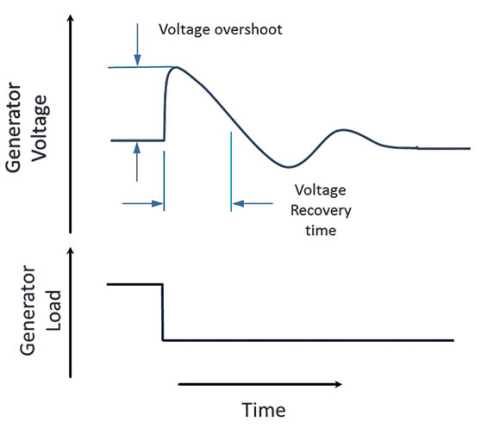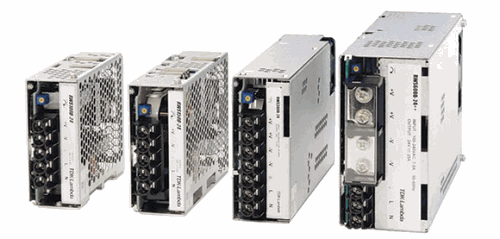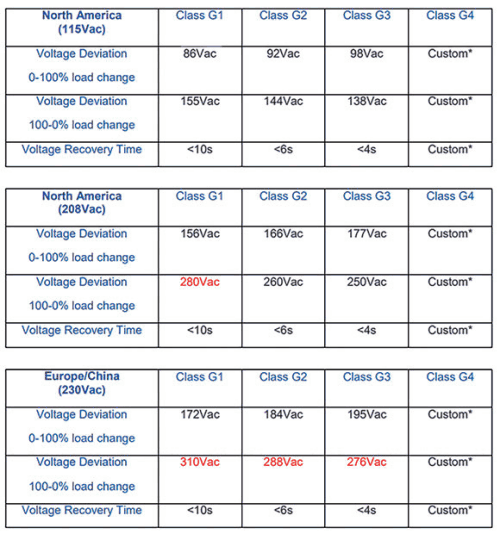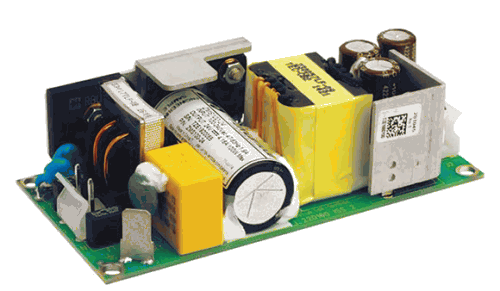
With outdoor events like concerts, events and festivals now involving multiple, large display screens and a host of other electronics, portable diesel generator sets are often used to provide the AC power in temporary locations.
With outdoor events like concerts, events and festivals now involving multiple, large display screens and a host of other electronics, portable diesel generator sets are often used to provide the AC power in temporary locations. One question we get asked quite frequently is about the suitability of running a power supply from a portable generator set. We tend to think of voltage waveform distortion and voltage noise spikes, but actually there are other issues that are of concern.

A backup generator for a factory would normally be powering multiple load types, consisting of heating, lighting, machinery and office equipment. It would be unlikely that the loading on the generator would undergo sudden major changes. At an outdoor event though, this may happen – particularly at the end of a song or during a break in the event schedule. If this occurs there could be a brief, but substantial rise in the AC voltage when the generator suddenly sees a very light load.
Initially manufacturers specifying the use of generators had to rely on local country standards, but these did not always specify voltage and frequency deviations – just the ability to be capable of accepting and recovering from a full load step. Stability and response times are now categorised under the ISO 8528 (BS7698) standard with four performance standards listed in ISO 8528-1-7 for governor regulation.

Class G1 is used for applications where the connected loads only require the basic parameters to be specified. This includes general-purpose applications like lighting and electrical loads.
Class G2 is required for applications where regulation is not that critical and temporary deviations are acceptable. Lighting systems, pumps, fans and hoists have some tolerance to frequency and voltage.
Class G3 is for applications where the equipment demands are moderately severe and includes telecommunications equipment and thyristor-controlled loads.
Class G4 is required for applications where the demands are extremely severe. This typically includes data-processing and computer equipment.
The limits for these devaluations are shown in Table 1.

Examining the impact of these voltages on various regions we get the data shown in Table 2. Most AC-DC power supplies are rated for 85 or 90 V a.c. to 264 V a.c. operation, but a number of manufacturers are now offering products that will accept 300 V a.c. for 5 seconds. These products tend to be enclosed in a metal chassis, like TDK-Lambda’s RWS-B series, and are targeted at industrial applications.

From the tables above, products rated for 300 V a.c. for 5 seconds can be used on Class G3 generators, and depending on the extent of the anticipated load changes, can probably be used with Class G2. Open-frame power supplies like TDK-Lambda’s ZMS100 tend not to have the 300 V a.c. peak rating. This is because they are usually used in ITE (Information Technology Equipment) systems, where the end customer will request a Class G4 generator.
This does raise issues of concern, as mentioned earlier...Designers of equipment who anticipate their product being used by diesel generators, should consider using an industrial AC-DC power supply that has a 300 V a.c. peak rating.

Manufacturers of the end systems should specify what class of generator their products should be used with. If they do see equipment failures when used with generators, they should question what class was used. Often the choice of generator will be that of the event organiser, who may lean towards the lowest cost.
| Tel: | +27 11 782 8728 |
| Email: | [email protected] |
| www: | www.accutronics.co.za |
| Articles: | More information and articles about Accutronics |
© Technews Publishing (Pty) Ltd | All Rights Reserved